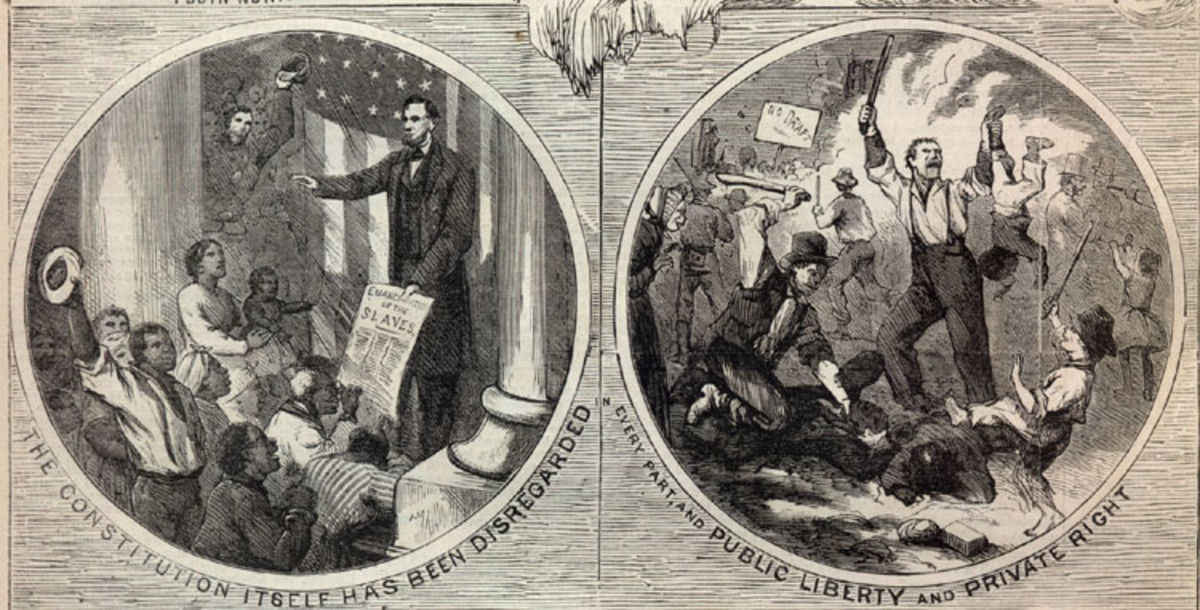The Perfect Storm Headed Our Way
The Perfect Storm Americans Ignore
The Convergence of the Causes of the Perfect Storm
Back in 1929, the first and most devastating market crash caused the most devastating financial disaster. Not a single American was left unaffected.
To review the history of what really caused the Great Depression, we must pay attention to the clues:
President Herbert Hoover had passed the Reconstruction Finance Act (RFCA) in 1932. The RFCA was provided financial support to state and local governments and made loans to banks, mortgage associations, railroads, insurance companies and other businesses. In reality the RFCA was a bailout that would continue to erode federal revenues until 1957. Congress later reestablished it as the Reconstruction Finance Corporation.
Ref: https://www.archives.gov/research/guide-fed-records/groups/234.html
Democratic Senator J. Hamilton Lewis in 1924 warned Congress the policies being approved would cause a financial crisis. The convergences that caused the crash of 1929 included:
. Low wages
. Decline in industrial production
. Rise in unemployment as a result of the decline in production
. Stocks and investments in excess of their actual value (inflated stock overvaluation)
Sound familiar? It should. But, it should also be mentioned that due to the policies of Robber Barons creating self empowered monoplies and corporate trusts, money was in too few hands who used their wealth to buy the government they, not the American voters wanted. From 1870 until 1900, Robber Barons like Andrew Carnegie, John D. Rockefeller, Cornelius Vanderbilt, J.P. Morgan, Henry Ford and Andrew W. Mellon whose tight grip on industry helped create the Great Depression since so much of their particular businesses relied so heavily on investments.
In 1929, stocks fell only 13% and did not return to normal until 1954.
Ref: https://www.federalreservehistory.org/essays/stock_market_crash_of_1929
The Stock Market Crash of 1987
On October 19, 1987, also referred to as "Black Monday" once again the stock market crashed.
The causes then were blamed on the convergence of several issues:
. A 5-year bull market with no corrections
. Fear of higher interest rates
. Growing hostilities in the Persian Gulf and US dependency on OPEC raising oil prices that have a serious effect on the US economy
. A flawed portfolio insurance strategy
. Flawed computer program-driven trading models
. Investor panic
Ref: https://www.investopedia.com/ask/answers/042115/what-caused-black-monday-stock-market-crash-1987.asp
The September 2008 Financial Meltdown
Perhaps, the Financial crisis began in 2007 and unlike, the Crash of 1929 and 1987, had global impact. However, history shows that when Lehman Brothers went bankrupt in 2008, the ripple effect shook banks around the world.
The convergences in 2008 included:
. Massive borrowing
. Excessive speculation in financial markets
. Flawed property transactions
. Extension of cheap lines of credit
. Rising energy, food and medical prices
. Stagnating wages
. Resulting increased inflation
It was not, as many like to infer, caused only by mortgaging banks who were approving mortgage loans that were inherently set up to end in massive foreclosures.
In reality, the US and Western Europe were focused mainly on property transactions, according to Scott Newton, emeritus professor of modern British and international history at the University of Cardiff.
These convergences caused loan and mortgaging borrowers to be unprepared for the financial squeeze, on wages that were not meeting the financial price increases imposed by the corporate world.
With the introduction of adjustable rate mortgages (ARMs), because of inflation housing prices average 6 figures and the rate of interest on a 6 figure loan on no growth incomes resulted in 3.2 million (81%) foreclosures in 2008, affecting 2.3 million properties, when the interest on an ARM loan was raised to the next level.
Note that the interest rate on an ARM loan with the interest rate on the loan note periodically adjusts based on the index that reflects "costs" to lenders of borrowing on credit markets. Since the rate of interest is not "fixed," as the interest changes so does the monthly increase in the loan to borrowers.
Ref: https://files.consumerfinance.gov/f/201204_CFPB_ARMs-brochure.pdf
The Financial Meltdown of 2008 was different from that of the financial crises of 1929 and 1987 mainly because of global trade exchanges and investments.
Too Big to Fail, Too Rich to Care, Too Dependent on Taxpayer Bailouts
When Lehman Brothers refused a bailout, it had a domino effect on other US Banks like AIG, Fortis, Merrill Lynch, HBOS, Alliance & Leicester, Royal Bank of Scotland, Bradford & Bingley and Hypo Real Estate.
Debt was piling up in the US but the hardest hit countries during the Financial Meltdown of 2008 was Iceland whose Central Bank and huge financial system that was out of balance with its economy, Iceland's government was unable to act as the "last resort" lender.
Greece had accrued massive debt to the European Union while Ireland's financial troubles were caused more by a property bubble that grew and burst.
Ref: https://www.nytimes.com/interactive/2016/business/international/greece-debt-crisis-euro.html
Yet, individual US taxpayers through foolish generosity were duped into handing these Too Big To Fail, To Rich to Care corporations and CEOs two massive bailouts, in 2008 and 2009, Trouble Assets Relief Program (TARP) and The American Recovery and Reinvestment Act (ARRA).
When President Obama created the Consumer Financial Protection Bureau in 2009, headed by Senator Elizabeth Warren, a former professor of economics, she put together an investigation by the Financial Crisis Inquiry Commission into corrupt banking practices that sent shivers up the spines of every US banker in the country.
These banks not only used taxpayer bailouts to shore up the 80% of money on deposit they'd spent on high risk foreign investments, but they had the utter audacity to act as if we, the individual taxpayers OWED it to them to spend our money on deposit as they pleased and leave 20% of what we had saved on interest rates that had already fallen to 2 and 3%.
Perhaps, the most galling of the statements from these CEO bankers came from one, Jamie Dimon, CEO of JP Morgan Chase. When Senator Warren threatened a lawsuit for the corruption of the top 6 US Banks like Goldman Sachs, CitiGroup, Bank of America, Deutschebank and Credit Suisse, Dimon arrogantly stated, "Go ahead, sue us. We can afford it."
Certainly they could. They had already pilfered 80% of the public's money and spent it on risky investments and then had no trouble engorging on bailouts from TARP and ARRA on taxpayers' dimes.
All of these banks were fined mainly for shady mortgage backed securities that caused a recession that collectively destroyed over $30 trillion of the world’s wealth.
Ironically, only one bank CEO went to jail for bank fraud, Kareem Serageldin of Credit Suisse served 30 months in jail for a scheme to hide more than $1 billion in losses in a mortgage backed securities.
The Perfect Storm Americans Ignore
The perfect storm Americans are ignoring is a jumble of several convergences that have the potential to be far worse for average Americans than these earlier financial disasters.
These convergences include:
. 43 million unemployment claims due to an epidemic
. Unstable growth of the Dow Jones Industrial Average
. Insider trading that is condoned
. An SEC that has lost its original authority over stocks, investments, traders and trading
. A current interest rate that is expected to bottom out at zero percent before the end of 2021 without serious attention to the economic effects
. A gig economy no longer based on full time jobs that result in huge corporate profits since employers do not need to pay any employee benefits and pay reduced employer taxes.
. A presidential administration that refuses to heed the advice of financial experts regarding the Federal Reserve interest rates
. Excessive deregulation of banks that profit from no growth in interest rates to depositors.
. Loss of growth in 401Ks, investment ROI and other retirement savings
.Devaluation of real property
. Escalation of costs for healthcare and education
. Unbridled acceptance of corrupt policies of corporation
. Dumping the heaviest burdens for tax revenues on individual Americans
. Threats to allow a presidential administration access to SS, Medicare and Medicaid fund surpluses
The US has made it far easier for the perfect storm to happen within a very short period of time. When there is no responsible, reliable backbone to support the weight of these convergences, disaster is ensured.
It simply is reprehensible that a government would allow every dime saved for retirement, medical costs and education to be spent on needless, endless for profit wars while the value of 401Ks show no growth because interest rates are zero.
It is contemptible to allow any presidential administration to use Executive Orders to avoid addressing the right of we who elect our House Representative and Senators to have our tax dollars spent as WE, not a president, decides.
The cost of the Corona virus is of itself financially devastating. But, to add to that devastation another $5 trillion in US debt mainly on the backs of individual taxpayers while $47 trillion in US profits sits offshore in tax free accounts is nothing short of robbbery.
How does any administration DARE extract tax dollars from individual taxpayers while flushing those tax dollars to US corporations who stuff the profits untaxed offshore or spend millions to avoid paying ANY US taxes?
You may be sure the Perfect Storm Americans ignore will answer that question posthaste.


![Obama's General Motors [GM] Tarp Bailout - The Untold Details Obama's General Motors [GM] Tarp Bailout - The Untold Details](https://images.saymedia-content.com/.image/t_share/MTc0MTU0NDA1OTcxNzY1MTE2/obama-general-motors-gm-tarp-bailout-untold-details.jpg)





